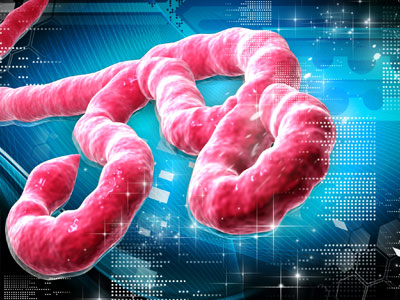There has been some confusion about whether one or two extra cases have been confirmed. People are infected when they have direct contact through broken skin, or the mouth and nose, with the blood, vomit, faeces or bodily fluids of someone with Ebola. Permanent Secretary, Lagos State Ministry of Health, Dr. Modele Osunkiyesi, yesterday outlined strategies put in place by the government to prevent resurgence of the disease in the state after being certified free of Ebola on the October 20, 2014, by the World Health Organization (WHO). Osunkiyesi told journalists that the government, in collaboration with the Federal Ministry of Health and other stakeholders, is maintaining relevant surveillance through Port Health Services and community surveillance activities in all local government areas.
While noting that prevention of Ebola remains a shared responsibility by all citizens, Osunkiyesi stated that although there has not been any reported case in Lagos State or Nigeria, there is need by residents to take responsibility for their health. She urged residents to observe the highest possible standards of personal and environmental hygiene through regular washing of hands with soap and running water; avoiding close contact with people who are sick; ensuring that objects used by the sick are decontaminated and properly disposed of, and avoiding touching or washing of dead bodies if not trained to do so. Osunkiyesi explained that the Ebola disease can be spread through close contact with the blood, body fluids, organs and tissues of infected animals, and handling sick or dead infected animals like monkeys and bats.
According to the permanent secretary, “Early symptoms of EVD include fever, headache, chills, diarrhea, nausea, vomiting, sore throat, backache, and arthritis. Later symptoms include bleeding from the eyes, ears and nose, bleeding from the mouth and rectum, eye swelling, swelling of the genitals and rashes all over the body that often contains blood. It could progress to coma, shock and death.” Osunkiyesi said there is no specific treatment for EVD, stressing that infected persons will need to be admitted into the hospital for specialized care and treated in isolation. She listed those at the highest risk as health-workers, families and friends of an infected person in the course of feeding, holding and caring for them.” She advised Lagos residents to remain calm. “Your government remains committed to protecting your health. Health workers are also enjoined to keep observing the universal safety precautions when dealing with patients.
For more information or clarification about the disease; please call 08023169485 or 08052817243”, Osunkiyesi said.
By Chukwuma Muanya and Wole Oyebade on July 3, 2015 The Guardian Nigeria online

 FOLLOWING reported resurgence of Ebola Virus Disease (EVD) in some neigbouring West African countries, including Liberia and Sierra Leone, the Lagos State government has asked residents to maintain adequate personal and environmental hygiene at all times to prevent re-entry of the disease into the state and the country at large. A report by Agence France Presse (AFP) confirmed yesterday that two more cases of Ebola have been confirmed in Liberia. A teenager was reported to have died from the viral infection on Sunday in Liberia.
FOLLOWING reported resurgence of Ebola Virus Disease (EVD) in some neigbouring West African countries, including Liberia and Sierra Leone, the Lagos State government has asked residents to maintain adequate personal and environmental hygiene at all times to prevent re-entry of the disease into the state and the country at large. A report by Agence France Presse (AFP) confirmed yesterday that two more cases of Ebola have been confirmed in Liberia. A teenager was reported to have died from the viral infection on Sunday in Liberia.





